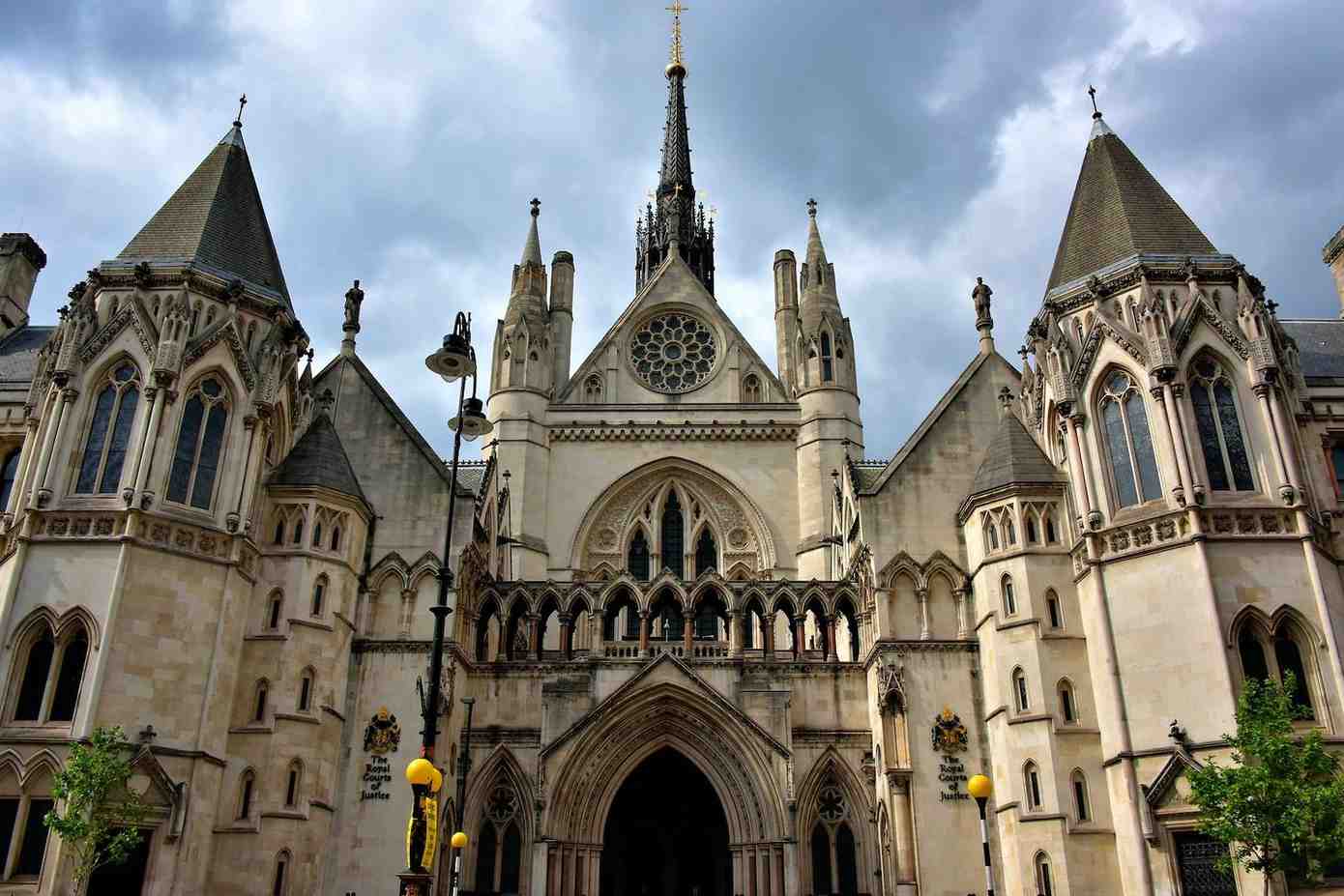EncroChat Ruling: Not the End of the EnChronical
The recent decision of the Investigatory Powers Tribunal (IPT), in some ways, represents a victory for the National Crime Agency. It affirms the lawfulness of hacking EncroChat communications. However, it is questionable how much this judgment really changes things for defendants currently in the midst of EncroChat cases. On 11 May 2023 the IPT, who deal with complaints made against investigatory bodies, ruled that the National Crime Agency (NCA) did not fail to obtain proper warrants when accessing encrypted messages sent via EncroChat. However, the story is far from over as the IPT also declined to answer certain questions over the admissibility of these intercepted EncroChat communications. EncroChat offered its users a platform to send encrypted messages that were seen to be safe from detection and attribution. As though straight from a spy film; all these devices include panic buttons where users can send a ‘kill pill’ to destroy the entire contents of their phones. However, in 2020 a joint European investigation team managed to recover communications through the EncroChat platform. On 26 March 2020 a targeting equipment interference warrant (TEI) was approved by the Investigatory Powers Commissioner, giving the NCA access to the product of this EncroChat infiltration. This TEI warrant is the subject of the Investigatory Powers Tribunal’s judgment. Under the codenames Operation Eternal (Met Police) and Venetic (NCA), investigators began to analyze vast amounts of data resulting in hundreds of arrests, seizures and convictions. Defendants embroiled in cases involving EncroChat communications have sought previously to challenge its admissibility, without any success. The IPT proceedings are the latest in the string of challenges and, while it has clarified some areas of contention, it has not resolved all of them. In the criminal law context, the Court of Appeal had previously considered the admissibility of Encrochat material (A & Others [2021] EWCA Crim 128). There were two categories of argument in that decision: that the material was inadmissible by statute because it was intercepted during the transmission of messages; and that the investigatory powers were defective and so the proceedings were unfair. The Court of Appeal rejected both limbs. The IPT judgment focuses on the second of these, given its role, and confirmed that the NCA acted lawfully in applying for and executing the warrants under review. It is a separate question as to whether the evidence was gathered in line with the warrants as granted, which has a significant overlap with the first question as both rely on whether the material was gathered in transit or from storage. This is a question of fact that is the subject of technical evidence. At the time of A & Others, there was no evidence to rebut the NCA’s assertions. This may change and is not settled. For this reason, the IPT has declined to rule further pending the decisions in the Criminal Courts. It should be noted that Defendants wishing to mount admissibility challenges face two significant hurdles. First, the rule barring the use of transit-intercept material is one of policy not principle: it is to protect the law enforcement process, not the privacy of criminal suspects. Second, in the law of England and Wales, unlawfully gathered evidence is not inadmissible as of right and the Court will have to balance up the interests of justice in each case. For this reason, it is important to remember that for those facing EncroChat proceedings, challenging admissibility is not the only option defendants have and that, especially following these rulings, EncroChat evidence should be approached like any other communications evidence, which raises questions such as: · Is the data complete? · Is there proper continuity? · Has the user of a device or handle been properly attributed? · Do the messages mean what they appear to say? · What other evidence is there in the case as a whole? Lloyds PR Solicitors have a wealth of experience in defending EncroChat and similar cases. If you are facing proceedings contact us on 020 8963 1050. Read the full judgment here: https://investigatorypowerstribunal.org.uk/judgement/sf-and-ors-v-nca-ipt-21-05-ch/
Lloyds PR Solicitors listed in The Times - Best Law Firms 2023
Lloyds PR Solicitors are delighted to have been selected by The Times as one of the Best Law Firms 2023. Please read the full article here https://www.thetimes.co.uk/article/lloyds-pr-solicitors-best-law-firms-rdgwp650f
Custody time limits and the Criminal Bar Association strike action
When a person is remanded into custody to await trial, they will be given a custody time limit (CTL). This the deadline for how long they can be kept in prison awaiting trial. If it expires before their trial begins, they must be released. The CPS can, and regularly do, apply to the Crown Court for CTL extensions if they think that the trial won’t start before the deadline expires. The judge can only grant an extension if there is a ‘good and sufficient cause’ to do so. Trials across the country have been delayed because of the CBA Action. This has resulted in a slew of applications by the CPS to extend custody time limits in cases where trials have been delayed for a lack of barristers. Judges faced with these applications have had to decide whether the unavailability of barristers to progress the trial constitutes a good and sufficient cause to extend a defendant’s custody time limit. Many judges have come down on the side of the defendant and refused these applications, resulting in the release of defendants from prison to await their trial on bail. However, the High Court has recently ruled that Crown Court judges have ‘erred in law in concluding that the unavailability of counsel could not constitute a sufficient cause for extending the custody time limit’. As a result, Crown Court judges will be far more likely to grant CTL extensions when the trial is delayed because of the industrial action.
What is a conspiracy?
Conspiracies in the context of criminal law are an often misunderstood but actually quite simple form of offence. A conspiracy is an agreement between two or more people to carry out a criminal offence. This agreement is sufficient to constitute an offence, regardless of whether the substantive offence was committed or not. For example, if two people bought a van with the intention of kidnaping someone, but never effected the kidnapping, they would still be guilty of conspiracy to kidnap by buying a van for that purpose. It should be noted that changing your mind and withdrawing from the plan will only go towards mitigating a sentence; one would still be guilty of the conspiracy. Conspiracies are treated very seriously and attract severe sentences. They can also be particularly challenging for the prosecution to prove because the substantive offence may never have been committed. The prosecution will usually have to show circumstantial evidence from which a jury can infer an agreement and knowledge between the defendants. Lloyds PR Solicitors specialise in a variety of conspiracy offences. We are able to effectively advise and represent you from the pre-charge stage and throughout the prosecution. Please contact out Team for more information.
Armenia v AB, Westminster Magistrates’ court – Armenian extradition case
Lloyds PR Solicitors successfully challenged the extradition of ‘AB’ to Armenia, where he was wanted to stand trial for theft and money laundering offences as part of an organised criminal group. His extradition was opposed on the basis that, as a bisexual man, he would be subject to inhuman or degrading treatment in an Armenian prison. After hearing from three defence experts on the treatment of LGBTQ+ people in prison and specifically Armenian prison conditions, the judge found in favour of our client and ruled that if extradited, there was a real risk of breaching his Article 3 and 6 human rights under the European Convention of Human Rights. The case was headed by Harsha Rupasinghe (partner) and Thomas Ashbey (solicitor).
Operation Mani – Conspiracy to traffic case
Lloyds PR Solicitors represented a defendant accused of being heavily involved in a conspiracy to traffic women from Romania to the UK to keep them in prostitution. It was alleged that the defendant was the Female Alpha in the conspiracy, the Madam of the brothels, and essential to its success. The prosecution case comprised many thousands of pages evidence. Further to this, the prosecution relied on months' worth of CCTV and surveillance outside the brothels, which required viewing, and instructions were taken on thousands of text messages and voice notes which were in Romanian. Thousands of pages of evidence continued to be served right up to, and during, the trial. After several days of trial, all co-defendants except for our client decided to plead guilty. Representations were made by Lloyds PR Solicitors to the prosecution that it was not in the public interest to proceed against our client alone, despite her alleged important role. These representations were accepted, and no evidence was offered. The defendant was acquitted. Lead solicitors in this matter were Harsha Rupasinghe (partner), Mohsin Ariff (solicitor) and Kate Coleman (solicitor).
Operation Flan, St Albans Crown Court – £5.2m money laundering case
Between 2017 and 2022, Lloyds PR Solicitors represented the Money Laundering Officer of a financial services company, accused of having laundered £5.2m in funds on behalf of an organised criminal network. It was alleged that the financial services company did an unusual trade in Euro, considering its London location, and that therefore it had habitually been providing organised criminal gangs with ‘clean’ money as the quantities of cash being exchanged did not accord with the AML evidence on file. This necessitated the input of forensic accountants. Two linked prosecutions (a drug dealing conspiracy and drug importation conspiracy) collapsed because we were able to exposed how improperly the case had been advanced by the prosecution. The defendant was acquitted, ending a case that had begun with his arrest over 4 years earlier. Lead solicitors in this matter were Harsha Rupasinghe (partner), Mohsin Ariff (solicitor) and Kate Coleman (solicitor).
Conspiracy to supply class A case involving a modern slavery defence
Between 2020 and 2022 Lloyds PR Solicitors acted for a lead defendant in a four-defendant conspiracy to supply class A drugs case. The case was extremely complex and involved over 80,000 pages in evidence, particularly phone evidence. Our client was a Thai lady who relied upon a defence under section 45 of the Modern Slavery Act 2015. Because of the seriousness and complexity of the case, we instructed a lead and a junior barristers to represent our client at trial. She was vulnerable and alleged that she was exploited by the other lead defendant. The case involved calling expert psychologist evidence, NRM evidence and a thorough examination of multiple phone evidence. The case required an exceptional amount of work, particularly because all the defendants were running cut-throat defences. A detailed preparation of the case lead to a unanimous acquittal of our client after eight weeks at trial. Lead solicitors in this matter were Prasad Palihawadana (partner) and Ieva Giedraityte (solicitor). They were assisted by caseworker Amelia McKey.










